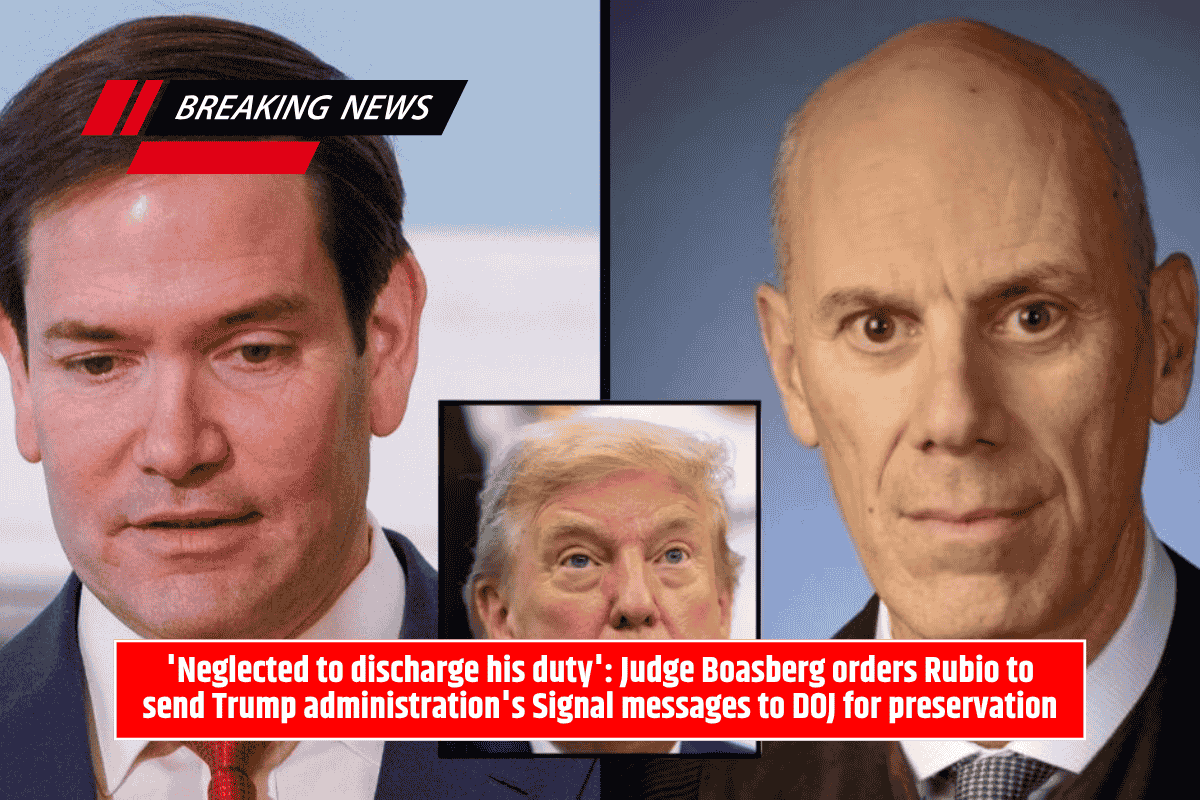A federal judge has ruled that acting United States Archivist Marco Rubio must transfer certain messages from the controversial Signal group chat to the Department of Justice (DOJ) for review and preservation.
The messages, linked to a national security breach involving top Trump administration officials, are at the center of a lawsuit filed by American Oversight, a government watchdog group.
The Signal Group Chat Scandal
The controversy erupted after journalist Jeffrey Goldberg revealed that he had been accidentally added to a Signal group chat that involved senior national security officials from the Trump administration.
The chat was discussing plans for a military strike against the Yemen-based Houthis, a sensitive matter that was inadvertently exposed to a journalist whom President Donald Trump had publicly criticized. The breach sparked a firestorm of controversy and calls for accountability.
Following the leak, American Oversight filed a lawsuit demanding that the records of the Signal chat be preserved, arguing that the communication violated federal records laws.
The group also requested that the administration update its record-keeping policies, notify Rubio in his role as archivist, and prevent any further deletion of relevant records.
Court’s Ruling and Limitations
In the lawsuit, American Oversight sought a preliminary injunction to force the administration to comply with its obligations under the Federal Records Act (FRA). While the court acknowledged that some of these requests were not feasible, it did grant limited relief. U.S.
District Judge Boasberg, an appointee of Barack Obama, ruled that the government must notify Rubio about any still-existing Signal messages and refer them to the Attorney General to ensure their preservation.
However, he determined that he could not take action regarding messages that had already been automatically deleted by the Signal app.
Boasberg’s ruling emphasized that American Oversight had not shown that the administration’s record-keeping programs were insufficient, and it could not force the recovery of messages that were already deleted.
The judge noted that Signal’s auto-delete function was a key factor, and American Oversight had previously agreed with Signal’s representation that deleted messages are not recoverable.
However, the judge did find that action could still be taken to preserve messages that had not yet been deleted. He stressed that the impending erasure of the remaining Signal messages could be halted by instructing government officials to stop the deletion process, thus ensuring the preservation of the records for future legal review.
Rubio’s Role and the Fallout
Marco Rubio, who serves as both the acting United States Archivist and the Secretary of State, was assigned the responsibility of managing the situation. The aftermath of the Signal chat leak also led to the departure of Mike Waltz, the former national security advisor who was responsible for creating the chat and inadvertently adding Goldberg.
Rubio’s appointment to replace Waltz added another layer of responsibility, as he now oversees both the State Department and the archiving duties related to the scandal.
American Oversight’s Next Steps
Following Boasberg’s ruling, Chioma Chukwu, executive director of American Oversight, expressed cautious optimism but made it clear that the organization would pursue further legal action if the administration failed to comply with the judge’s order.
“We expect immediate compliance,” Chukwu said, “and if they drag their feet or fail to act, we are fully prepared to pursue further legal action to ensure government records, which belong to the public, are preserved and protected.”
The Impact of “Signalgate”
The Signal group chat leak remains one of the most significant and controversial incidents of Trump’s second administration. Critics have used the incident to highlight concerns about the inexperience of top national security officials and the potential dangers if such sensitive information had been exposed to foreign enemies instead of a U.S. journalist.
As tensions in the Middle East continue to rise, the legacy of the Signal chat leak, known as “Signalgate,” looms large, with potential implications for future U.S. foreign policy decisions.
